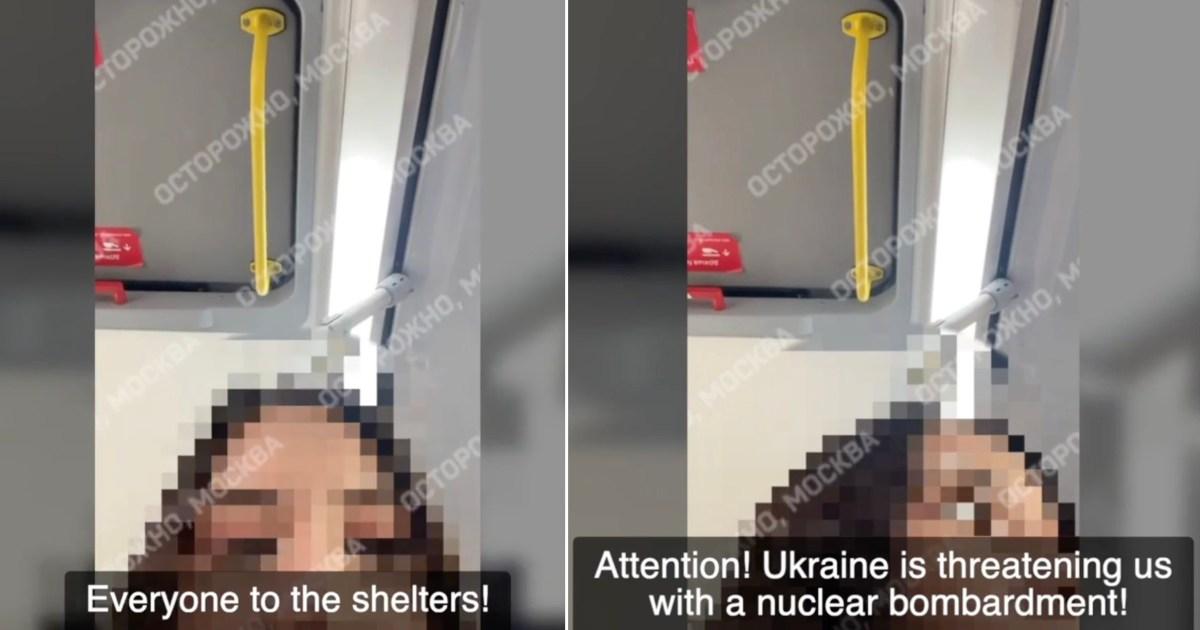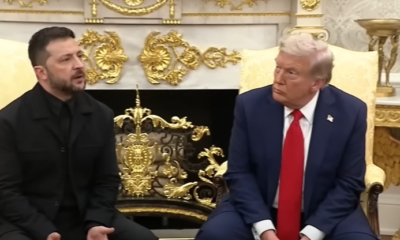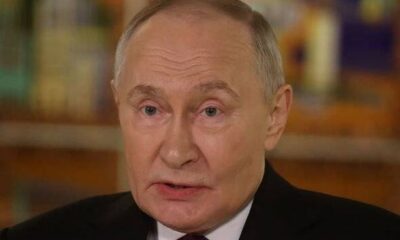World
Panic in Moscow as Hackers Trigger False Nuclear Alert

On August 12, 2025, panic swept through Moscow as bus passengers were ordered to seek shelter due to a false alert about a nuclear strike from Ukraine. The alarming announcement, broadcast over the intercom system of public buses, claimed, “Attention, attention! Ukraine is threatening us with a nuclear bombardment.” The announcement urged people to hurry to bomb shelters, creating widespread fear among commuters.
Moscow transport officials quickly identified that the alert was the result of a cyberattack orchestrated by unidentified hackers. The specific number of buses affected remains unclear, but the disruption led to urgent reassurances from authorities indicating that there was no real threat. A spokesperson for Moscow transport stated, “Audio messages that did not correspond to reality were played in the buses. Currently, specialists are checking the network infrastructure and eliminating the consequences of unauthorized access.”
The announcement was recorded on a bus operating the 191 service, which is managed by the Transavtoliz company. As the situation unfolded, officials worked to calm the public, insisting that the warning was a hoax and that there was no need for anyone to proceed to bomb shelters.
In a broader context, this incident occurred against the backdrop of escalating tensions between Russia and Ukraine. Ukraine, which surrendered its nuclear arsenal in the 1990s under the terms of the Budapest Memorandum, does not possess nuclear weapons. The memorandum was designed to ensure Ukraine’s sovereignty and territorial integrity in exchange for the relinquishment of its nuclear capabilities.
This false alarm unwittingly coincides with diplomatic efforts involving US President Donald Trump and Russian President Vladimir Putin, who are expected to meet soon to address the ongoing conflict in Ukraine. Notably, Volodymyr Zelensky, the President of Ukraine, will not be part of these discussions, despite earlier indications that he might join.
Tensions continue to rise as both sides engage in military actions. Ukraine has intensified its strikes against Russian positions, leading to increased chaos in various regions, including Moscow’s airports. As casualties mount on both sides, President Zelensky has reiterated calls for a ceasefire to pursue a path toward a “just peace.”
As the situation develops, authorities in Moscow remain vigilant against potential cyber threats while reaffirming their commitment to maintaining public safety. The incident has raised questions about cybersecurity measures in place for public transport systems, highlighting the vulnerabilities that can lead to widespread panic.
-

 Entertainment4 months ago
Entertainment4 months agoKate Garraway Sells £2 Million Home Amid Financial Struggles
-

 Entertainment3 months ago
Entertainment3 months agoAnn Ming Reflects on ITV’s ‘I Fought the Law’ Drama
-

 World10 hours ago
World10 hours agoCoronation Street’s Shocking Murder Twist Reveals Family Secrets
-

 Health3 months ago
Health3 months agoKatie Price Faces New Health Concerns After Cancer Symptoms Resurface
-

 Entertainment3 weeks ago
Entertainment3 weeks agoCoronation Street Fans React as Todd Faces Heartbreaking Choice
-

 Entertainment3 months ago
Entertainment3 months agoCoronation Street’s Carl Webster Faces Trouble with New Affairs
-

 World3 days ago
World3 days agoKevin Sinfield Exceeds Fundraising Goal Ahead of Final Marathons
-

 Entertainment3 days ago
Entertainment3 days agoTwo Stars Evicted from I’m A Celebrity Just Days Before Finale
-

 World3 weeks ago
World3 weeks agoBailey Announces Heartbreaking Split from Rebecca After Reunion
-

 Entertainment3 months ago
Entertainment3 months agoWhere is Tinder Swindler Simon Leviev? Latest Updates Revealed
-

 Entertainment4 months ago
Entertainment4 months agoMarkiplier Addresses AI Controversy During Livestream Response
-

 Science2 months ago
Science2 months agoBrian Cox Addresses Claims of Alien Probe in 3I/ATLAS Discovery





















